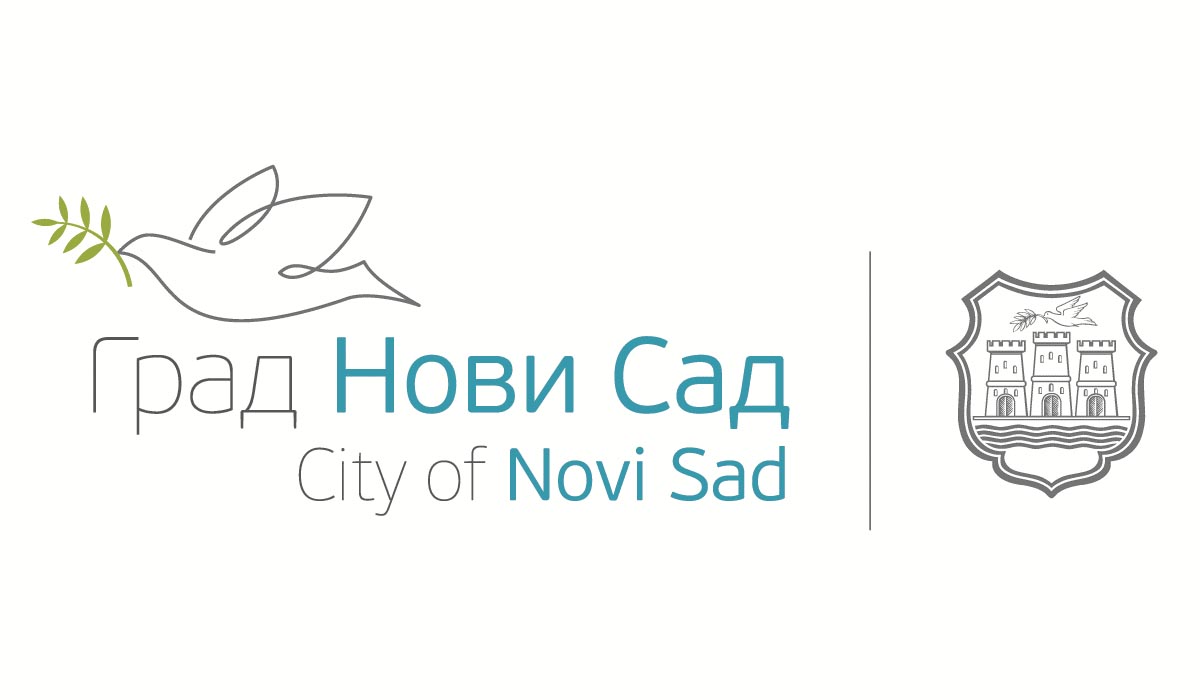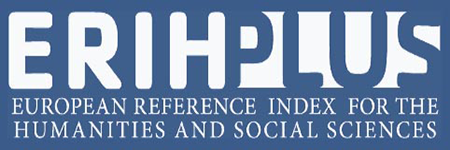YUGOSLAVIA AND DE GAULLE’S REVISION OF THE COLD WAR
DOI:
https://doi.org/10.19090/i.2022.33.153-173Keywords:
Yugoslavia, France, foreign policy, détente, Charles de Gaulle, Joseph Broz, Tito, Cold WarAbstract
This paper will analyze France’s attempted foreign policy strategy in Yugoslavia and in Eastern Europe during the 1960s, beginning with the various positions of de Gaulle’s France and Tito’s Yugoslavia and the numerous similarities in how the two countries’ diplomacy functioned. In both countries, the course of foreign policy was determined according to the authoritarian characteristics of their systems and of their central figure–the president. Both countries were also interested in transcending the Cold War division of Europe, and they based their strategies on attempts to marginalize the United States and pacify the Soviet regime. De Gaulle’s attempt at a détente, which Yugoslavia was very sympathetic toward and had also committed itself to similar goals, failed due to unrealistic illusions of overcoming this bipolarity by forging a middle way between the two opposing Cold War blocs. Faced with an overestimation of their own influence, along with the Warsaw Pact’s aggression toward Czechoslovakia, Moscow’s complete lack of interest in pacification, and the US’s unwillingness to withdraw, end of de Gaulle’s attempts at détente, in which Yugoslavia would play an important role, came to an end. Nevertheless, similar European and global policy goals brought France and Yugoslavia closer together, and this established the principles on which a cooling down period in the mid-1970s became possible.
Downloads
References
Arhiv Jugoslavije
Fond Kabinet Predsednika Republike (KPR)
Fond Savez komunista Jugoslavije (SKJ)
Diplomatski arhiv Ministarstvaspoljnih poslova Republike Srbije
Fond Politička Arhiva
REFERENCES:
Bekić, D. Jugoslavija u Hladnom ratu. Odnosi sa velikim silama, 1949–1955, Zagreb: Globus, 1988.
Bešlin, M. Ideja moderne Srbije u socijalističkoj Jugoslaviji, knjiga 1, Novi Sad, Beograd: Akademska knjiga, Institut za filozofiju i društvenu teoriju Univerziteta u Beogradu, 2022.
______. ‘Usvajanje Programa SKJ 1958. i reformske tendencije u jugoslovenskom društvu i partiji,’ in: I. Duda (ed.), Komunisti i komunističke partije: politike, akcije, debate. Zbornik odabranih radova s Trećeg međunarodnog znanstvenog skupa Socijalizam na klupi, Zagreb – Pula, 2019, 11–13.
______. ‘Četnički pokret Draže Mihailovića – najfrekventniji objekat istorijskog revizionizma u Srbiji,’ in: M. Samardžić, M. Bešlin, S. Milošević (ed), Politička upotreba prošlosti: Istorijski revizionizam na postjugoslovenskom prostoru, Zbornik radova, Novi Sad: AKO, 2013, 83–142.
Berstein, S. The Republic of de Gaulle, 1958–1969, Cambridge: Cambridge University Press, 1993.
Berić. G. Zbogom XX Stoljeće: Sjećanja Ive Vejvode, Zagreb: Profil, 2013.
Bogetić, D. Nova strategija spoljne politike Jugoslavije 1956–1961, Beograd: Institut za savremenu istoriju, 2006.
______. Jugoslavija i Zapad 1952–1955, Beograd: Institut za savremenu istoriju, 2000.
______. Jugoslovensko-američki odnosi 1961–1971, Beograd: Institut za savremenu istoriju, 2012.
______. ‘Jugoslavija i borba alžirskog naroda za nacionalno oslobođenje 1954–1962,’ in: M. Milošević (ed.), Jugoslavija-Alžir, Zbornik radova sa naučne konferencije, Beograd: Arhiv Jugoslavije, 2013, 11–48.
Bogetić, D. Životić, A. Jugoslavija i arapsko-izraelski rat 1967, Beograd: Institut za savremenu istoriju, 2010.
Bozo, F. ‘France, “Gaullism,” and the Cold War,’ in: M. P. Leffler and O. A. Westad (eds.), The Cambridge History of the Cold War, Volume 2, Crises and Détente, Cambridge: Cambridge University Press, 2010, 158–178.
______. ‘“I Feel More Comfortable with You.” France, the Soviet Union, and German Reunification,’ Journal of Cold War Studies, Vol. 17, No. 3, 2015, 116–158.
Crump, L. The Warsaw Pact Reconsidered. International Relations in Eastern Europe, 1955–1969, London: Routledge, 2015.
Čavoški, J. ‘Jugoslavija, Alžir, nesvrstane zemlje i velike sile u Hladnom ratu 1954–1962,’ in: M. Milošević (ur.), Jugoslavija-Alžir, Zbornik radova sa naučne konferencije, Beograd: Arhiv Jugoslavije, 2013, 101–140.
Dimić, Lj. Jugoslavija i Hladni rat, Beograd: Arhipelag, 2014.
______. ‘Yugoslavia and Security in Europe during the 1960s (Views, Attitudes, Initiatives),’ Tokovi istorije, 3, 2016, 9–42.
Davidson, C. ‘Dealing with de Gaulle: United States and France,’ in: C. Nuenlist, A. Locher and G. Martin (eds), Globalizing de Gaulle: International Perspectives on French Foreign Policies, 1958–1969, Lexington Books, 2010, 111–134.
Jakovina, T. ‘Jugoslavija na međunarodnoj pozornici: Aktivna koegzistencija nesvrstane Jugoslavije,’ u: L. Perović (ured.), Jugoslavija u istorijskoj perspektivi, Beograd, 2017, 434–484.
Jackson, J. De Gaulle, Harvard University Press, 2018.
Judt, T. Postwar: a history of Europe since 1945, New York: Penguin Books, 2005.
Kershaw, I. Do nade i natrag. Europa 1950-2017, Zagreb: Fraktura, 2018.
Kocić, M. ‘Jugoslovensko-francuski odnosi u savremenoj srpskoj istoriografiji,’ Zbornik radova sa naučnog skupa Nauka i savremeni univerzitet 2, Humanizacija univerziteta (tematski zbornik radova), Niš 2013, 524–534.
Nečak, D. Ostpolitik Willyja Brandta i Jugoslavija (1963–1969), Zagreb: Srednja Europa, 2015.
Martin, G. General de Gaulle’s Cold War. Challenging American Hegemony, 1963–68. New York: Berghahn Books, 2013.
______. ‘Towards a New Concept of Europe. De Gaulle’s Vision of a Post-Cold War Europe,’ in: F. Bozo, M-P. Rey, B. Rother and N. Piers Ludlow (eds.), Visions of the End of the Cold War in Europe, 1945–1990, New York, Oxford: Berghahn Books, 2012, 91–104.
Nester, W. De Gaulle’s Legacy. The Art of Power in France’s Fifth Republic, Palgrave Macmillan, 2014.
Program SKJ, Beograd: Komunist, 1958.
Petrović, V. Titova lična diplomatija, Beograd: Institut za savremenu istoriju, 2010.
Perišić, M. Od Staljina ka Sartru: formiranje jugoslovenske inteligencije na evropskim univerzitetima 1945-1958, Beograd: Institut za noviju istoriju Srbije, 2008.
Pirjevec, J. Tito i drugovi, Zagreb: Mozaik knjiga, 2012.
Radovanović, Lj. Francuska i De Gol, Beograd: Komunist, 1964.
Rajak, S. Yugoslavia and the Soviet Union in the Early Cold War Reconciliation, comradeship, confrontation, 1953–1957, London: Routledge, 2010.
Rusinow, D. The Yugoslav experiment 1948–1974, Berkeley and Los Angeles: University of California Press, 1978.
Soutou, G-H. L’alliance incertaine: Les rapports politico-stratégiques francoallemands, 1954–1996, Paris: Fayard, 1996.
Selinić, S. ‘Ambasador nekomunista i partijska diplomatija: Marko Ristiću Parizu 1945–1951,’ Tokovi istorije, 2, 2012, 135–159.
Soutou, G. H. ‘De Gaulle’s France and the Soviet Union from Conflict to Détente,’ in: Wilfried Loth (eds.), Europe, Cold War and Coexistence 1953-1965, London: Frank Cass, 2004, 170–186.
Tripković, Đ. Jugoslavija–SSSR: 1956–1971, Beograd: Institut za savremenu istoriju, 2013.
Trahtenberg, M. ‘The de Gaulle Problem,’ Journal of Cold War Studies, Vol. 14, No. 1, 2012, 81–92.
Todić, K. A Traditional Friendship? France and Yugoslavia in the Cold War World, 1944–1969, Phd diss. McMaster University, 2015.
Troude, G. ‘La Yougoslavie titiste vue par les diplomates français (1955–1974),’ Balcanica: Annual of the Institute for Balkan Studies XL (2009), 167–181.
Žarković, P. ‘Sipovska koncepcija jugoslovenske spoljne politike. DSIP u središtu unutarpartijskih sporenja,’ Tokovi istorije, 1, 2017, 91–117.
Westad, O. A. Povijest Hladnog rata, Zagreb: Fraktura, 2021.













